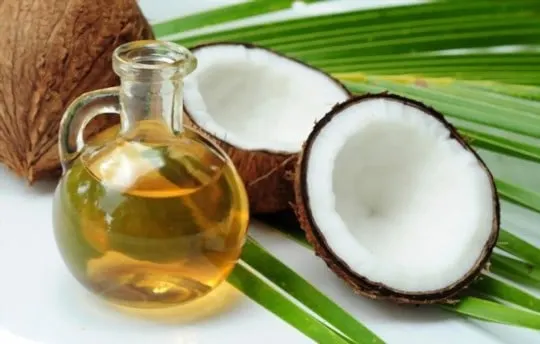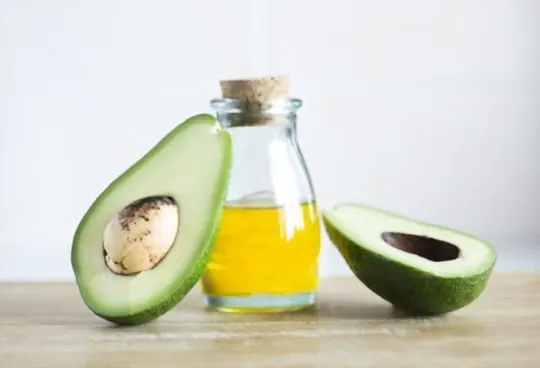Have you ever wondered what makes canola oil so confusing? What is the best substitute, and how should it be used? Canola oil has a wide range of culinary usages and can be found in a variety of prepared foods.
It is low in saturated fat and high in monounsaturated fat, making it an especially popular choice for deep-frying.
However, if you’re cooking with a specific dietary requirement or are looking for more healthful choices, there are great substitutes that offer unique health benefits as well.
From sunflower to olive oils, coconut to avocado oils, learn about the top five substitutes for canola oil before making your decision on what will suit your needs best.
What is Canola Oil?

Canola oil is a type of vegetable oil obtained from crushing the seeds of the canola plant.
This oil is low in saturated fat, making it an ideal choice for cooking, baking, and deep-frying.
Made with fewer than seven percent saturated fat and a high concentration of monounsaturated and polyunsaturated fats, canola oil is one of the few cooking oils that has some health benefits.
It has relatively neutral taste and a high smoke point (the temperature at which it starts to burn), making it suitable for high-temperature cooking.
It also works well in homemade salad dressings as a replacement for butter or other high-fat ingredients.
Canola oil is made by chemically processing and pressing ripe canola seeds to produce oil that is light yellow to golden in color.
The resulting product contains about six percent saturated fat — compared to 12–13 percent found in olive oil – meaning it’s better for your heart health than other fatty oils like lard or coconut oil.
Canola also contains omega-3 fatty acids, making it a better choice than some other commonly used oils such as corn or soybean oil.
The 5 BEST Substitutes for Canola Oil
Canola oil has a unique flavor and light texture that makes it an ideal cooking oil for many applications.
Here’s a detailed comparison of the 5 best substitutes for canola oil, along with their key characteristics and proper ratios:
| Substitute | Key Characteristics | Proper Ratio |
|---|---|---|
| Peanut Oil | Peanut oil is a versatile cooking oil with a neutral flavor. It has a high smoke point, making it suitable for high-heat cooking methods. | Use an equal amount as canola oil |
| Coconut Oil | Coconut oil adds a subtle tropical flavor to dishes. It has a lower smoke point, so it’s best for low to medium-heat cooking or baking. | Use an equal amount as canola oil |
| Olive Oil | Olive oil offers a distinct fruity flavor and is rich in heart-healthy monounsaturated fats. It has a lower smoke point, making it ideal for sautéing and low to medium-heat cooking. | Use an equal amount as canola oil |
| Avocado Oil | Avocado oil has a mild flavor and a high smoke point, making it suitable for various cooking methods, including high-heat cooking and frying. | Use an equal amount as canola oil |
| Ghee | Ghee is clarified butter with a nutty flavor. It has a high smoke point, making it suitable for high-heat cooking methods. | Use an equal amount as canola oil |
Now let’s explore each substitute in more detail:
1 – Peanut Oil

Peanut oil is a great substitute for canola oil, both in cooking and baking.
It has a similar molecular structure and color as canola oil; however, it does have its own distinctive smell.
As far as health benefits are concerned, peanut oil has the same amount of saturated fat and monounsaturated fat as canola oil but contains more polyunsaturated fat than its Canola counterpart.
It is also slightly higher in calories and has a smoke point of about 440°F (230°C), making it ideal for deep-frying.
Keep in mind that peanut oil may not be the best choice for those with allergies or sensitivities to peanuts because trace amounts could end up in the food you’re cooking or baking with this particular substitute.
2 – Coconut Oil

Coconut oil is made from pressing the ripe, white flesh of coconuts.
It has a strong flavor, which makes it best suited to savory dishes.
Solid at room temperature and liquid when heated, it’s especially good for baking and sautéing.
It also contains healthy medium chain fatty acids that can help boost metabolism and support immunity.
In many ways, its a healthier alternative to canola oil as it doesn’t contain any trans fats.
When substituting coconut oil in recipes that call for canola oil, use the same amount of coconut oil but melt it first if it’s solid at room temperature.
The other downside is that coconut oil has a fairly low smoke point compared to canola oil, so you don’t want to use it for frying or other high temperature cooking techniques.
3 – Olive Oil

Although it is slightly higher in calories compared to canola oil, olive oil has similar properties and is a logical substitute for canola.
Its flavour is more intense than that of canola oil and its smoke point of 375°F (190°C) is slightly lower than that of canola, so on high-heat sautéeing or grilling one must be extra vigilant to prevent burning the oil.
The further down the list of ingredients you see ‘extra virgin olive oil’, the better the quality.
Unlike regular olive oils that are typically a blend of refined and virgin olive oils, extra virgin is 100 percent pure cold-pressed olives without any heat or chemicals.
Being unrefined it tastes fruity and moist on the tongue.
It also contains more healthy monounsaturated fats, contributing to overall healthier eating choices.
4 – Avocado Oil

Avocado oil has a mild and nutty flavor, making it another favorite choice for people looking for canola oil substitutes.
For best results, try to buy avocado oil that is labeled unrefined, cold-pressed and organic.
Unrefined avocado oil is resistant to high heat and can be used in cooking in the same way as canola oil.
Additionally, it contains a good deal of antioxidants, vitamins A & E and beneficial monounsaturated fats which helps with healthy digestion.
Because of its flavorful taste, unrefined avocado oil is also great for adding flavor when sautéing vegetables or roasting potatoes.
Refined avocado oils are available as well but have been processed to withstand higher temperatures meaning they are not great choices for uses that require lower temperatures like vinaigrettes and pestos.
Try substituting your use of canola oil with unrefined avocado; you won’t regret the flavorful difference.
5 – Ghee

Ghee is a clarified form of butter from South Asian cuisine, but it can also be used in place of canola oil.
Ghee starts off as regular butter that has been slowly heated.
The fat and water slowly separate, and the resulting liquid butterfat is golden-brown in color, with a mild nutty flavor.
Ghee has a high smoke point, which means that it doesn’t burn easily when heated.
It’s even higher than canola oil’s smoke point so you won’t need to worry about scorching or burning when cooking with ghee.
Ghee’s creamy consistency makes it perfect for spreading on toast or adding to cooked grains and vegetables for added flavor, but it isn’t recommended for use in baking since its flavor is quite strong.
Conclusion
Overall, when considering the best canola oil substitutes, the most suitable replacements will depend on the recipe and desired taste.
Olive oil, coconut oil, and avocado oil are particularly good alternatives to use in place of canola oil for sautéing dishes because they have a much higher smoke point than canola oil.
Butter and margarine tend to be good substitutes in baking recipes, as they provide a similar texture and flavor profile as canola oil.
For those looking for a more health-conscious option, there are vegetable oils available like soybean or sunflower that have similar properties to canola while containing less saturated fat.
Whatever product you choose, keep an eye out for freshness and quality labels to ensure you are getting the best possible product for your recipe.

The 5 BEST Substitutes for Canola Oil
Ingredients
- 1 – Peanut Oil
- 2 – Coconut Oil
- 3 – Olive Oil
- 4 – Avocado Oil
- 5 – Ghee
Instructions
- Choose your preferred substitute from the list of options.
- Organize all of your ingredients.
- Use the proper substitute to cook your recipes.
